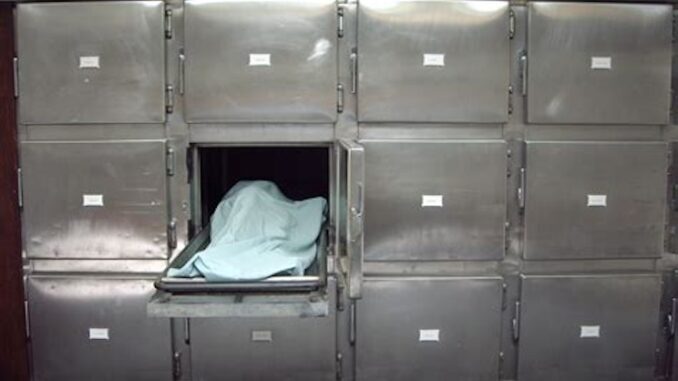Tens of millions of adolescent girls will be injected with the human papillomavirus (HPV) virus as part of an international campaign supported in large part by the Bill & Melinda Gates Foundation.
Critics have criticized the concept, claiming that the vaccine will inflict far more harm than good.
GET AROUND THE CENSORS
Sign up to receive uncensored news delivered to your inbox.
You have the option to unsubscribe at any time. You agree to our Terms of Service by subscribing.
Gavi, the Vaccine Alliance, announced a $600 million investment to meet its target of vaccinating 86 million girls in low and middle-income countries by 2025, claiming that the effort will prevent "over 1.4 million future deaths."
According to The Defender, the Gates Foundation co-founded Gavi and serves on one of its four permanent boards. The other permanent seats are held by UNICEF, the World Bank, and the World Health Organization (WHO), whose second-largest donor is Gates.
On the board is also the Clinton Health Access Initiative.
A critic of the global HPV vaccine campaign, James Lyons-Weiler, Ph.D., suggested that mass vaccination will cause a devastating number of serious side effects in young girls, despite the fact that no studies have shown that the HPV vaccine prevents cancer, despite claims to the contrary by vaccine makers and public health officials.
Lyons-Weiler, the Institute for Pure and Applied Knowledge's director, told The Defender:
"We were told in 2009 that the Severe Adverse Event [SAE] rate for HPV vaccinations was 6.5%. However, according to a study we published in Science, Public Health Policy, and The Law, the HPV vaccine's adverse event profile is significantly worse than previously reported.
"Using this vaccine on millions of girls and young women will result in a mass casualty event that these countries do not currently have and do not require." SAEs will occur at a rate of 65,000 per million vaccinated women, and the vaccine's claimed net advantages simply do not exist."
'There will be no eligible girl... left behind.'
Nigeria became the latest African government to push HPV vaccines earlier this month, incorporating the vaccine into its routine immunization program and announcing an initial drive to vaccinate 7.7 million girls, the highest number ever in a single round of HPV vaccination in Africa.
Nigeria's campaign, according to Gavi, would begin with a five-day mass immunization blitz in schools and communities across 16 of the country's 36 states and the Federal Capital Territory. The campaign's second phase will begin across the rest of the country in May 2024.
Gavi, UNICEF, the WHO, and other "unnamed partners" are providing financial assistance to Nigeria's Federal Ministry of Health so that the vaccines can be distributed free of charge throughout the country.
Gavi is co-financing vaccination purchases and offering technical assistance. The WHO funded worker training and the establishment of immunization stations. UNICEF is supplying 15 million vaccines, as well as cold storage infrastructure and logistical support. According to the press release, it is also running radio and television advertisements "in multiple local languages to dispel misinformation and rumors."
Over 35,000 health workers were trained to provide immunizations at 4,163 sites across the 16 states participating in phase one of the rollout "to ensure no eligible girl is left behind." Remote villages will be served by mobile immunization units.
According to the news release, "Gavi-supported vaccine introductions" for the HPV vaccination have been hampered by worldwide supply limitations, but those supply challenges are being overcome "thanks to years of market-shaping efforts to develop a more robust vaccine market."
Merck, the manufacturer of the HPV Gardasil vaccine, revealed last week that its 2023 third-quarter Gardasil sales increased 13% to $2.6 billion after the treatment was licensed by the US Food and Drug Administration (FDA) in 2006.
Merck is a prominent partner in Gavi's global vaccine distribution in low- and middle-income countries.
The vaccination rollout in Nigeria follows a similar Gavi-led—and funded by UNICEF, WHO, and the Clinton Health Access Initiative—national HPV campaign started in August in Indonesia to add the HPV vaccine to that country's normal schedule. The campaign seeks to immunize 90% of the girls in the area.
Bangladesh initiated a similar countrywide HPV vaccine rollout in October, with the goal of reaching 100% coverage. In September, Zambia undertook a similar campaign, vaccinating 1.42 million girls aged 9 to 14 in six days.
Sierra Leone began routine vaccination with the vaccine in October, and Eritrea will commence a countrywide vaccine program in November 2022.
These initiatives are part of the WHO's World Health Assembly's 2020 initiative to eliminate cervical cancer as a public health problem worldwide.
Gavi, Gates, and the HPV vaccine deployment in Africa
Gavi, the WHO, and UNICEF are all linked in various ways. Gavi is a public-private partnership that was established at a World Economic Forum meeting in 1999. It claims to have vaccinated 1 billion children since then, using "innovative finance and cutting-edge technology."
According to scholar Anne-Emanuelle Birn, Sc.D., Gavi has long been criticized for putting too much emphasis on novel vaccines developed by its pharmaceutical partners rather than ensuring that basic vaccination is carried out, for being largely "top-down," and for subsidizing Big Pharma through questionable contracts and incentives—all in the name of "saving children's lives."
Gavi is still heavily influenced by the Gates Foundation. Although Gavi is a "public-private partnership," its private donor list includes more than 50 individual firms, the majority of them having only donated between $200,000 and a few million dollars. To date, the Gates Foundation has given $4.1 billion.
In addition to the Gates Foundation, WHO, UNICEF, and the Clinton Health Access Initiative, board members include representatives from donor countries, including the United States, and countries targeted by Gavi's actions.
Andrew Otoo, formerly of Pfizer and currently representing Merck, and Sai Prasad of Bharat Biotech are among the industry representatives. A number of "independent individuals" from global finance and government, as well as one representative from civil society organizations, serve on the board.
Gavi has been delivering the HPV vaccination in Africa since 2011, when it funded Rwanda's initiative to become the first African country to undertake a nationwide HPV vaccine program for girls under the age of 15. It now claims to have 90% coverage for girls in Rwanda.
Although Gavi's logo, rather than the Gates Foundation's, appears on HPV promotional literature and press releases, researchers have argued that Gates' substantial funding for Gavi and the WHO, as well as the foundation's research grantmaking, give it disproportionate power to drive global and local health priorities and spending.
The Gates Foundation provided a roughly $2 million, five-month grant to Nigeria's Sydani Group in September, which is providing technical help for Phase 1 of the country's vaccination rollout.
The foundation also supported HPV trials in low- and middle-income countries such as India and Kenya, which are used to justify mass vaccination and make dose recommendations, some of which have resulted in scandals.
The campaign to eradicate cervical cancer is similar to the Gates Foundation's previous campaign to eradicate polio, which was also begun by the WHO and backed by Gavi, UNICEF, and others.
This campaign finally failed, resulting in "a massive outbreak of vaccine-derived infections" that "engulfs much of Africa," according to the BMJ.
Gavi will have sponsored the introduction of the HPV vaccine in 13 African countries by the end of 2020. It is now in charge of the new round of rollouts.
"I am deeply disturbed by continuing Big Pharma/GAVI/WHO attacks on African people, at the tip of blatantly unnecessary, dangerous, and expensive injections," Children's Health Defense Africa's Shabnam Palesa Mohamed told The Defender. "It is critical that we strengthen our efforts to raise awareness in Africa about Big Pharma crimes and informed consent."
However, she added, there is a lot of opposition to this policy among Africans. "African countries fulfilled an important role in rejecting most dystopian amendments to the International Health Regulations at the WHO's World Health Assembly 75 last year."
Experts are 'very concerned' about the possibility of bad events.
According to Gavi, over 80–90% of the approximately 300,000 fatalities per year from cervical cancer—the fourth most frequent malignancy in women—occur in low- and middle-income countries, with Sub-Saharan Africa accounting for the bulk.
According to Muhammad Ali Pate, the coordinating minister of health and social welfare, approximately 8,000 Nigerian women die each year from cervical cancer.
The increased rates are mostly linked to low cervical cancer screening coverage and restricted treatment choices in the region, while exact figures vary greatly between countries.
Although the HPV virus can cause cervical cancer, the great majority of infections resolve on their own.
HPV strains number in the hundreds. Although HPV infection is not the only risk factor for cervical cancer, high-risk HPV strains can produce cervical cell abnormalities that are precursors to malignancy.
Regular pap testing has been shown to reduce the incidence and mortality of cervical cancer by at least 80% in women.
Yet, according to Gavi, "cervical cancer is almost entirely vaccine-preventable, which means that alongside screening for early detection, rolling out the HPV vaccine is critical to preventing infections."
Dr. Diane Harper of the University of Michigan's Department of Family Medicine, for example, applauds Gavi's plan. According to Harper, "Nigeria is making awesome strides in eliminating the risk of cervical cancer in its population by vaccinating its girls."
Lyons-Weiler was not convinced.
"First and foremost, no studies have ever shown that HPV vaccines reduce the incidence of cervical cancer."
"Instead, they demonstrated that HPV vaccines reduce the prevalence of cervical intraepithelial neoplasia, a precondition occasionally associated with cervical cancer, associated with HPV-vaccine-targeted HPVs."
"The second important point, which is directly related to the first, is that studies show that HPV vaccination programs have actually resulted in the replacement of previously most common types of HPVs with rarer types of HPVs that also cause cancer." This is referred to as an HPV-type replacement.
"Rarer HPV types may be less common because they are more lethal." So, even in completely vaccinated populations, HPV vaccine programs should result in a rise in cervical cancer incidence, involving more severe tumors at a younger age."
The length of time between infection and the development of cancer (mean time 23.5 years), a lack of adequate informed consent, the complexity of HPV infection and cervical cancer, and the negative impact of girls' sexual behavior, which may worsen the risks of cervical cancer, make studying HPV vaccine efficacy for eliminating cervical cancer difficult.
'Merck is more concerned with profit than with people.'
The Gardasil vaccine has been linked to a slew of side effects. Permanently disabling immunological and neurological diseases such as postural orthostatic tachycardia syndrome, or POTS, fibromyalgia, and myalgic encephalomyelitis/chronic fatigue syndrome have been documented following HPV vaccination.
There have been thousands of complaints of bad incidents all around the world. Peer-reviewed scientific literature from the United States, Australia, Denmark, Sweden, France, and Japan, as well as statistics from each of these countries' public health authorities, show credible links between HPV vaccination and autoimmune disorders.
Merck has a record of such reported adverse events but does not make it public. A district judge in North Carolina ordered Merck to turn over all of its Gardasil adverse event records to plaintiffs suing the pharmaceutical company for injuries purportedly caused by the vaccine.
The government's Vaccine Injury Compensation Program has given out more than $70 million to patients who filed Gardasil injury claims. There are now approximately 80 cases active in federal court in the United States against Merck for vaccination injuries.
According to Michael Baum, senior partner at Wisner Baum and the attorney representing vaccine-injured plaintiffs in multiple Merck lawsuits, data on HPV vaccine injuries in the United States raises severe concerns regarding Nigeria's mass immunization program:

















